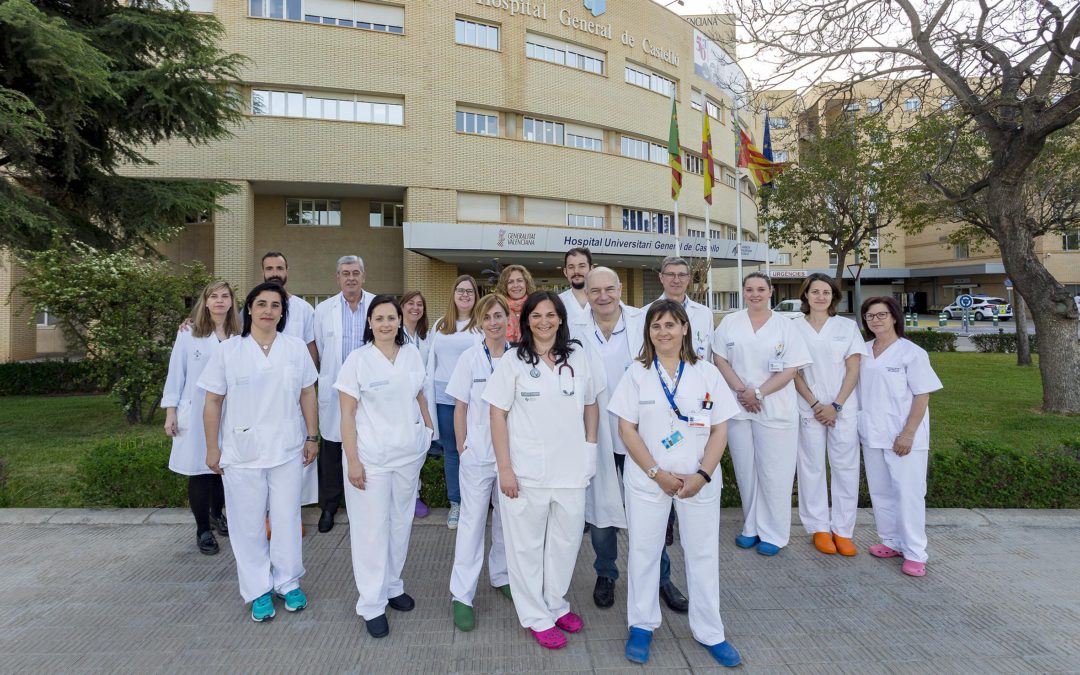Ovarian cancer continues to be one of the main causes of gynaecological death, despite advances in its treatment. It accounts for 5% of all cancers among women and causes more deaths than any other female genital cancer. Description and quantification of tumour burden are essential for planning surgical procedures. The International Federation of Gynaecology and Obstetrics has a reference staging system for ovarian cancer. However, this classification does not accurately describe the tumour burden and the location of the disease in the entire peritoneal cavity in cases of advanced epithelial ovarian cancer.
Researchers of the UMCOAP working group have shown that peritoneal carcinomatosis index (PCI) is an objective and reproducible instrument to quantify the actual tumour burden in patients with advanced epithelial ovarian cancer (AOC), in a work that is part of the research activities of the Chair for Surgical Training and Research of the UJI. The UMCOAP working group is composed by staff from the Multidisciplinary Unit of Abdominopelvic Oncology Surgery of the General University Hospital of Castelló and the Predepartmental Unit of Medicine of the Universitat Jaume I of Castelló.
In two articles published in the European Journal of Surgical Oncology and the World Journal of Surgical Oncology earlier this year, the research team considers that PCI could be an adequate method to accurately describe peritoneal dissemination, because it evaluates the exact distribution of cancer in this area by measuring the size of the lesions in three abdominopelvic regions and provides accurate information on the tumour burden. The study was developed at the General University Hospital of Castelló from January 2013 to December 2016. It included 80 patients.
Researchers explain that one of the main prognostic factors for survival in people with this disease is the presence of residual tumour after cytoreductive surgery and the knowledge of the peritoneal carcinomatosis index is strongly related to an optimal result of this type of intervention. The surgical team has established a predictive model for suboptimal cytoreductive surgery, with the determination of PCI before and during the intervention, using computed tomography and laparoscopy that can help determine which patients are suitable for primary cytoreductive surgery and which ones should undergo neoadjuvant chemotherapy.
The prediction of surgical outcomes in patients with this condition is a current surgical dilemma and the best method between primary cytoreductive surgery or neoadjuvant chemotherapy is not universally defined. The research team proposes a combination of methods that can be useful in determining the outcome of surgery and that balances both the effectiveness of the intervention and patient safety. The study has also included other individual characteristics, such as functional status, age or nutritional status, to decide what type of treatment should be applied.
The team led by Drs. Antoni Llueca and Javier Escrig is made up by Anna Serra, Isabel Rivadulla, Luis Gómez, R. Játiva, E. Moreno, B. Montañés, L. Granel, C. Villegas, V. Ángel, K. Maiocchi, C. Medina, K. Delgado, M. Rodrigo, M. Bellver, N. Ruiz, A. López, Y. Maazouzi, D. Piquer, B. Segarra and R. del Moral.
The Medtronic Chair for Surgical Training and Research arises from the will of the faculty of the Predepartmental Unit of Medicine of the UJI and the Medtronic company to promote research and teaching in the field of surgery. To this end, the Chair promotes the surgical training of professionals involved in surgery through courses, scientific conferences and meetings. It also works in the development of new surgical techniques; promotes research of new materials and instrumentation in the field of surgery, and fosters surgical training at the undergraduate and graduate levels.
——–
References:
«Prognostic value of peritoneal cancer index in primary advanced ovarian cancer». European Journal of Surgical Oncology. 2018 Jan;44(1):163-169. doi: 10.1016/j.ejso.2017.11.003. Epub 2017 Nov 23. https://www.ncbi.nlm.nih.gov/pubmed/29198495
«Prediction of suboptimal cytoreductive surgery in patients with advanced ovarian cancer based on preoperative and intraoperative determination of the peritoneal carcinomatosis index». World Journal of Surgical Oncology. 2018 Feb 23;16(1):37. doi: 10.1186/s12957-018-1339-0. https://www.ncbi.nlm.nih.gov/pubmed/29471831
Fundación Universtitat Jaume I-Empresa: www.fue.uji.es

